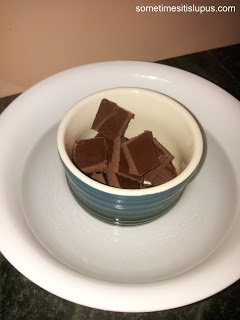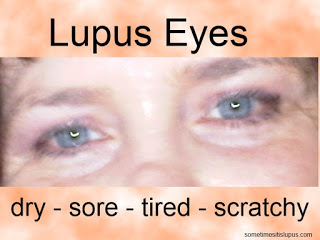 |
| icanhascheezburger.com |
The following article has been republished from The Conversation.
It's a reminder for people with lupus, and other conditions that compromise our immune systems, that we have to be careful of things other people don't worry about. Public health authorities may publish
lists for pregnant women about the foods they need to avoid, but how many autoimmune patients are given copies of these lists?
Understanding the recent listeria-linked cheese recall
By Tom Ross
, University of Tasmania
Soft cheeses made by Jindi were recently recalled in Victoria, after they were linked to the deaths of three adults, a miscarriage, and a score of other cases of “listeriosis”. The case is a reminder of the need for public health authorities to be vigilant about educating at-risk people about this disease and for the food industry to minimise the risk from contaminated food.
Deadly disease
Listeriosis is almost always acquired by eating contaminated foods. While listeria monocytogenes are quite common in the environment (and at low levels in many fresh foods), the disease itself is rare. There are about 60 reported cases a year in Australia, and that rate is similar to other developed nations, although it’s possible that as many cases again go undetected.
If detected early enough, infections can be treated successfully with antibiotics. Despite being uncommon, listeriosis is very serious and will be fatal for 20% to 30% of infected people. This statistic is repeated in the current outbreak, which has seen four deaths out of about 20 cases.
Listeria monocytogenes is harmless to most people, even when ingested at high levels. Many of us will have the bacteria in our guts at some time and they usually pass through without harming us. People at high risk are those with reduced immune function, such as those on drugs to stop rejection of an organ transplant, or to control an autoimmune disease, such as lupus, those receiving anti-cancer treatments, the aged, those with diabetes, liver or kidney disease, and the unborn or very young babies.
Indeed, a person with liver cancer is nearly 1000 times more likely to get listeriosis than a healthy young adult, while pregnant women and their foetuses are at about 100 times greater risk. Virtually every person who gets listeriosis has some underlying condition that predisposes them to infection.
If people susceptible to listeriosis ingest a large amount of listeria, some may cross from the intestine into the cells of the body, where they can “hide” from the immune system. They then increase in number, moving from cell to cell, and spreading to susceptible sites in the body, where they cause damage to host cells. This results in disease symptoms. The most common sites of overt infection and damage are the central nervous system and the uterus of pregnant women and foetuses.
Mitigating risk
Health authorities have produced information pamphlets for pregnant women to alert them to the risk from eating certain foods, while also giving advice about alternative foods to meet nutritional needs. Such advice is equally relevant to people with reduced immunity.
Since listeriosis was first recognised in the 1980s as a food-borne disease capable of causing outbreaks with deadly consequences, research has shown how best to reduce the risk. Listeria is common in nature, preferring moist habitats where there’s decaying organic matter, such as rotting vegetation. Unusually among bacteria that can cause human infection, it can grow at refrigeration temperatures and tolerates quite salty conditions. As such, it can grow in foods that have traditionally relied on added salt and chilling to extend shelf life.
Some of these foods allow listeria to grow to dangerous levels, albeit slowly. Foods most at risk of transmitting listeriosis are those that have a long shelf life but that still require refrigeration, such as “ready-to-eat” processed meats (for example ham, cold meats and paté), cheeses (particularly soft, surface-ripened cheeses, such as Brie, or Camembert), smoked fish and other lightly preserved seafood, and some types of pre-prepared salads.
Listeria’s lifestyle means it likes to set up house in food factories, because they often have nooks and crannies that are cool, remain wet and have traces of food to sustain populations of the bacteria. For the food industry, understanding that lifestyle has led to increased vigilance and steps to prevent listeria from becoming established factories, to detect it if it has, and to prevent if from contaminating foods.
This increased vigilance has also meant that potential problems are more reliably detected before contaminated foods are released or people become ill. Foods are also sometimes recalled to minimise risk to consumers.
Tom Ross receives funding from Meat and Livestock Australia, and NZ Ministry of Primary Industries.

This article was originally published at The Conversation.
Read the original article.
Additional Information
Since the link to this post was posted on the Sometimes, it is Lupus Facebook page, there have been a couple of questions about where to find lists of food which people with chronic illnesses should avoid. There are some links below to Queensland Health Fact sheets about food safety. Because of our compromised immune systems, we're best to assume that anything that could be harmful to a developing foetus (whose immune system isn't fully developed) could also be harmful to us.
Cooling and reheating hazardous foods
Cross contamination
Use by and best before dates
Listeria and food
Egg safety
Lunchbox safety
Healthy eating in pregnancy
Food safety when outdoors


















